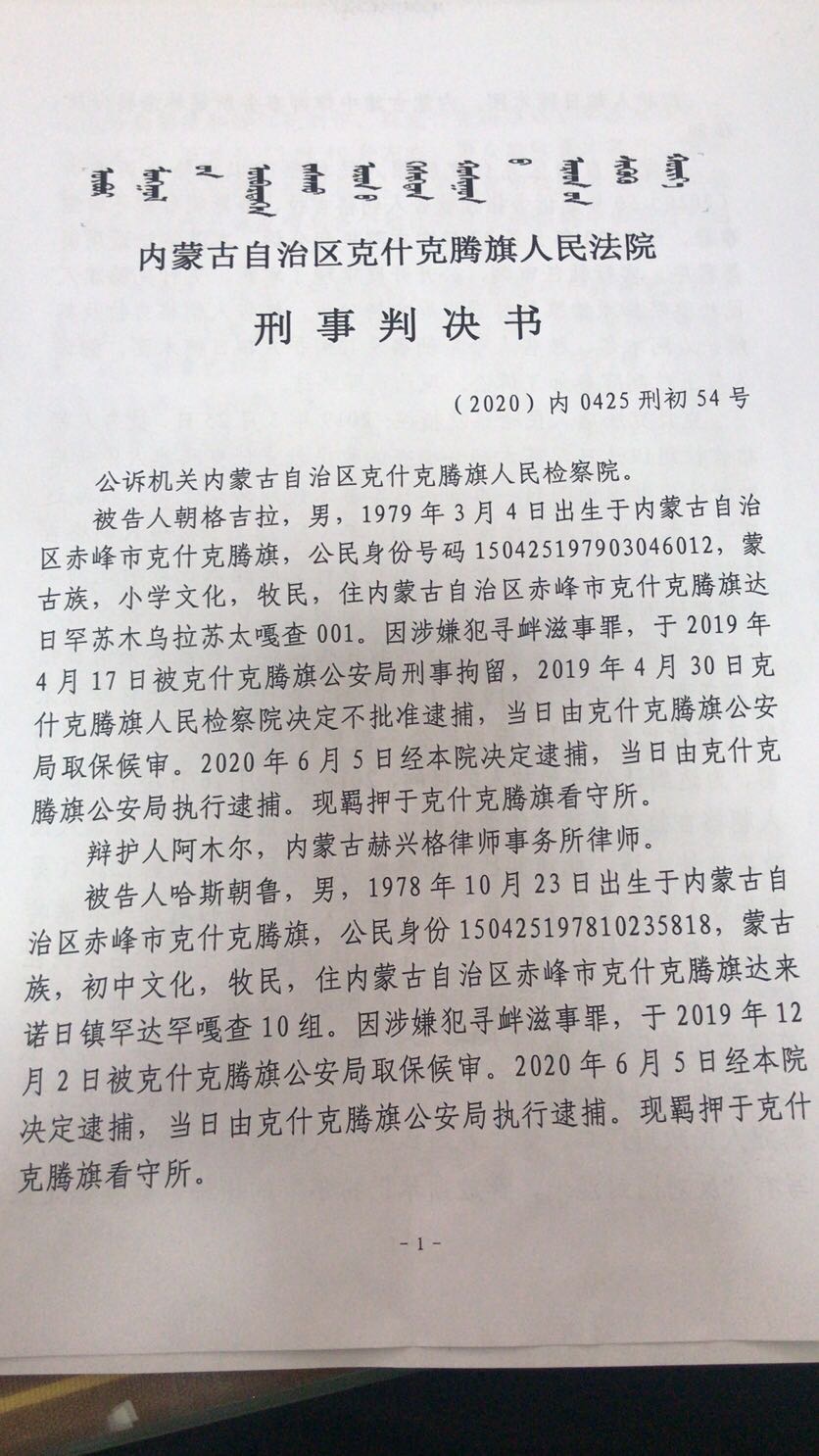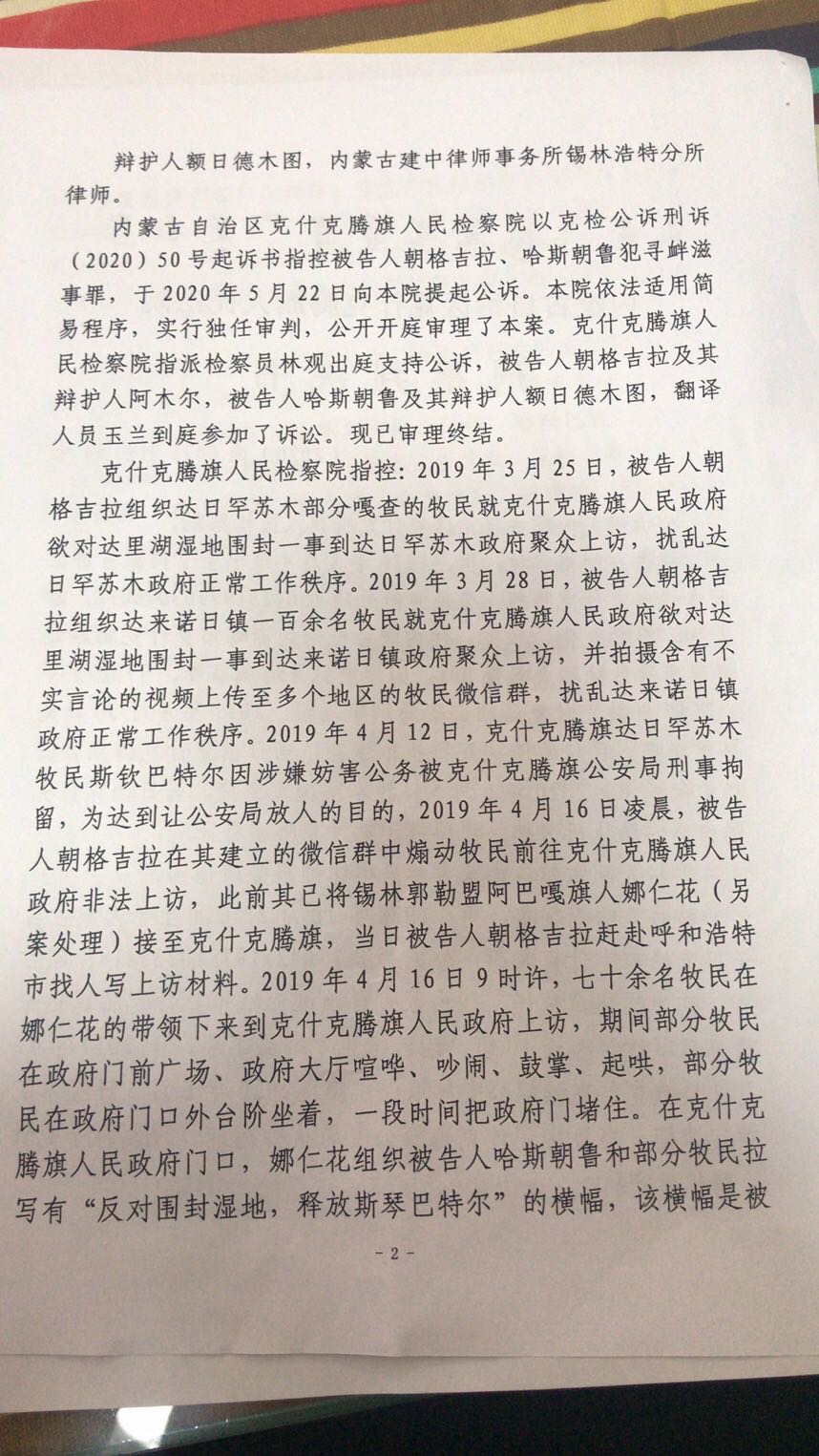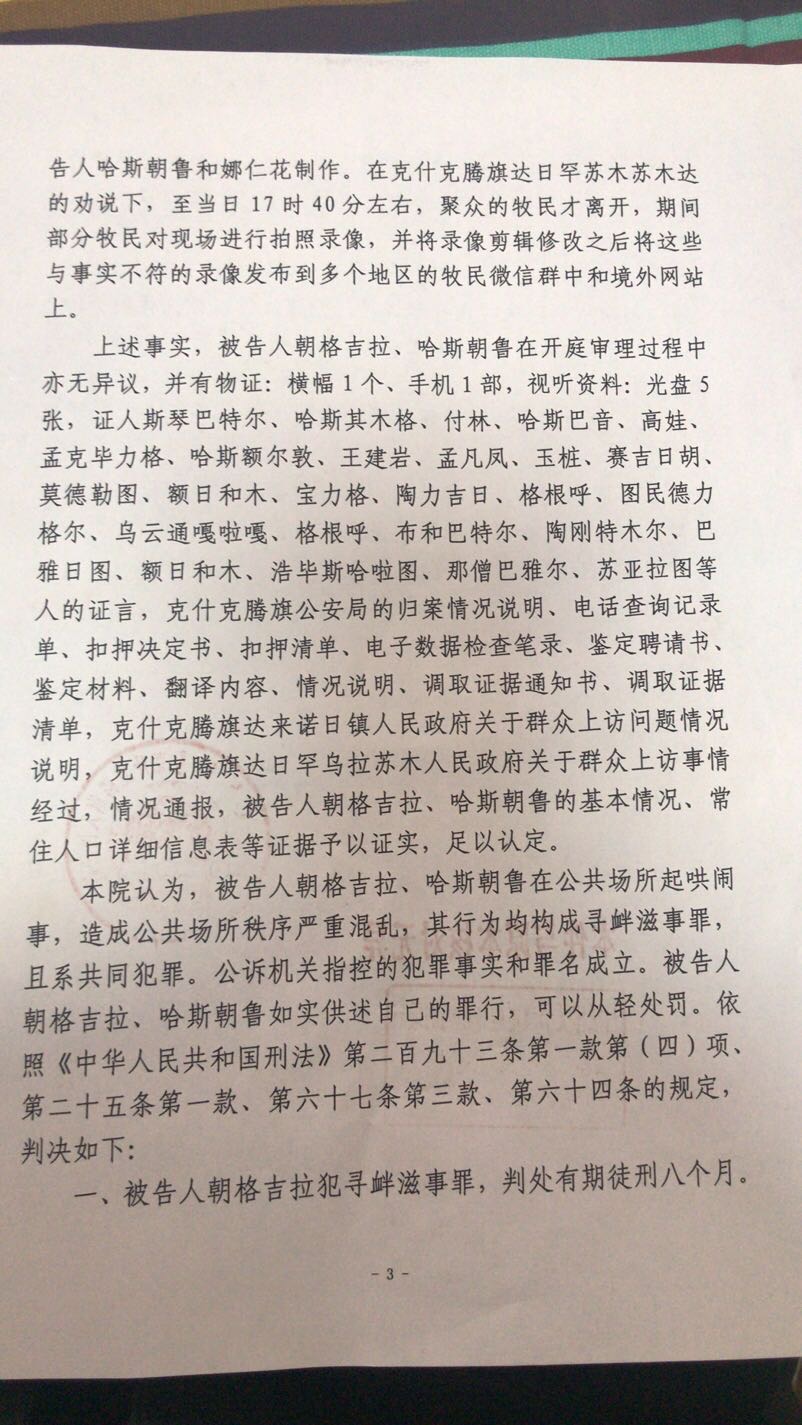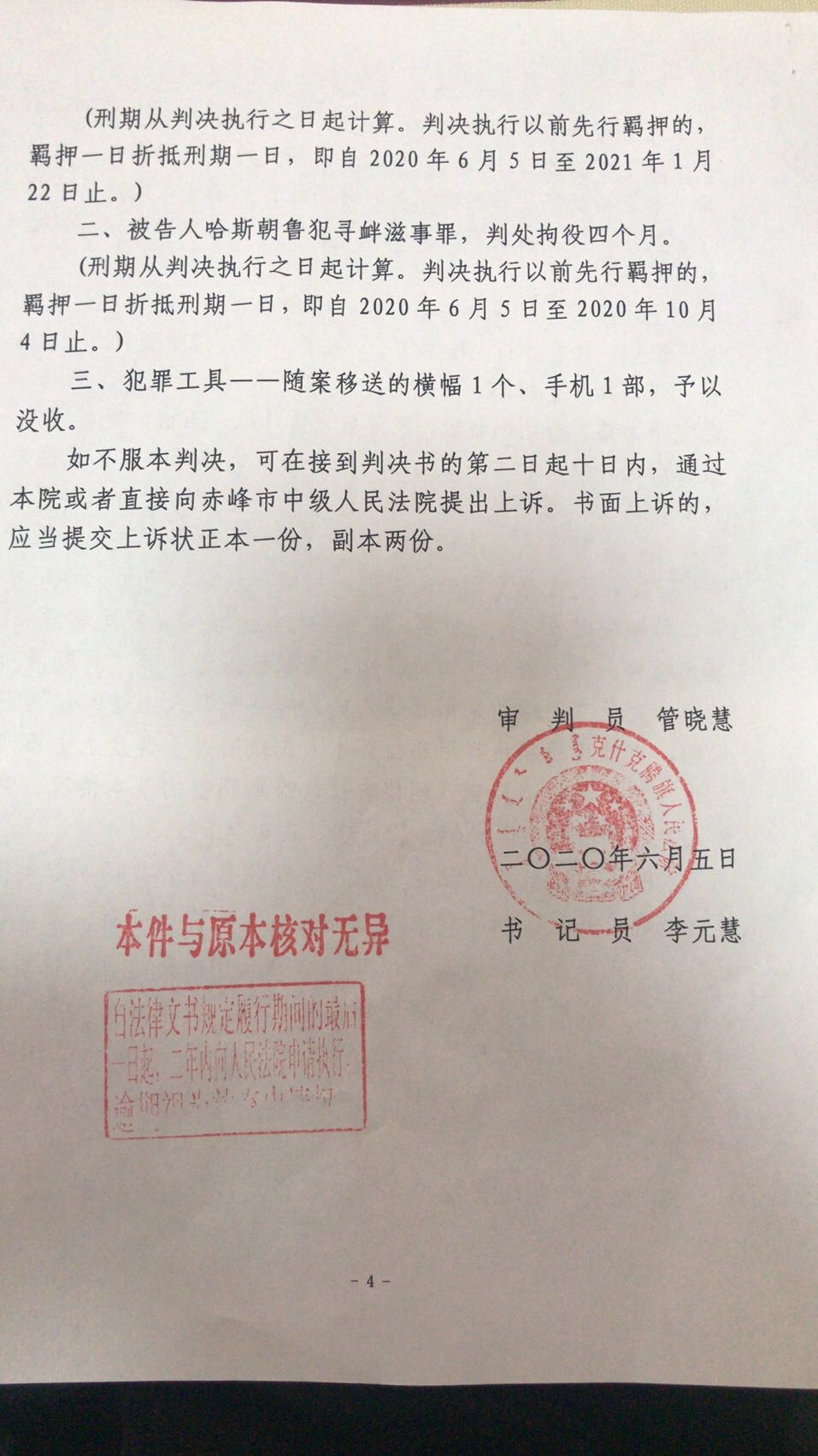On June 5, 2020, the People’s
Court of Heshigten Banner of
Southern (Inner) Mongolia tried
two Mongolian activists, Mr.
Tsogjil and Mr. Haschuluu, who
organized local Mongolian
herders to protest the
government’s illegal
appropriation of their grazing
land. Jail sentences of eight
months and four months were
handed down to Tsogjil and
Haschuluu respectively for
“rallying the public to petition
the government, obstructing
official business, videotaping
and posting untrue stories, and
transferring edited video
footage to foreign
organizations.”
“Defendant Tsogjil, male, born
on March 4, 1979” and “defendant
Haschuluu, male, born on October
23, 1978” were sentenced for
“picking quarrels and provoking
trouble,” according to the
criminal verdict issued by the
Heshigten Banner People’s Court.
“Criminal tools used: one long
banner and one cellular phone
that were already confiscated,”
the verdict added.
“They are totally innocent,” Mr.
O. Sechenbaatar, who himself was
released from a year of house
arrest recently after being
detained for two weeks for
supporting the protest in the
neighboring Ongniuud Banner, said
in an audio statement. “What
they did was nothing but to
legally file complaints about
the local government’s illegal
land grab and stage protests to
urge the local Public Security
Bureau to release detained
herders and activists including
myself.”
Under the Chinese authorities’
“bail pending trial” for over a
year, the two activists were
deprived of their basic rights
to mobility and communication
after being released from their
initial detention last year.
“The trial was carried out
pretty much behind a closed
door,” O. Sechenbaatar told the
Southern Mongolian Human Rights
Information Center. “The crimes
they were accused of committing
were rallying people to demand
the release of detained herders;
inviting Ms. Yanjindulam (also
knowns as Naranhuaar), a
herder's leader, to join the
protest; posting protest video
footage on WeChat and sending
information to foreign hostile
forces.”
Tsogjil, a native of Heshigten
Banner, had actively been
advocating Southern Mongolians’
rights to use their native
language; access their land,
water, and other resources; and
maintain national identity. He
founded and managed at least
five discussion groups with a
total membership of nearly 2,500
Mongolian herders and grassroots
activists on China’s only
available social media outlet
WeChat.
Before his arrest in April 2019,
Tsogjil rallied the Mongolian
herders for the release of the
detained writer O. Sechenbaatar
in one of his WeChat discussion
groups called “Language,
Livestock, and National
Boundary.” “I ask our fellow
herders from each and every
village to gather in front of
the banner government tomorrow
to demand the immediate release
of O. Sechenbaatar,” he wrote.
“O. Sechenbaatar went to jail
for defending our land and
rights. We all must wake up and
take up the fight to protect our
homeland,” Tsogjil said in the
discussion group. “The
authorities can arrest one of
us, a few of us, but cannot
arrest all of us.”
“Haschuluu was accused of
committing similar crimes,
including his involvement in
last year’s public protest in
front of the banner government
and demanding my release,” O.
Sechenbaatar said.
“What is truly revealing is the
family members of the two were
told by the court that the
decision was handed down from
the above. This means the
government is above the law, and
the law is a tool for the
government officials to punish
those who protest the
government’s abuse of power,” O.
Sechenbaatar added.
According to online discussions
posted by local herders from
Heshigten Banner, Haschuluu
lived with his 80-year-old
mother who is left without
anyone's care after his trial
despite her poor health.
Heshigten Banner People's Court
Verdict on Tsogjil and
Haschuluu's Case









 Beyond
Great Walls: Environment, Identity, and Development on the Chinese
Grasslands of Inner Mongolia
Beyond
Great Walls: Environment, Identity, and Development on the Chinese
Grasslands of Inner Mongolia China's
Pastoral Region: Sheep and Wool, Minority Nationalities, Rangeland
Degradation and Sustainable Development
China's
Pastoral Region: Sheep and Wool, Minority Nationalities, Rangeland
Degradation and Sustainable Development The
Ordos Plateau of China: An Endangered Environment (Unu Studies on
Critical Environmental Regions)
The
Ordos Plateau of China: An Endangered Environment (Unu Studies on
Critical Environmental Regions)